Doter l'Europe de services autonomes et opérationnels d'observation et de surveillance de la Terre, telle est l'ambition de Copernicus.
Informations essentielles
| Mission | Observation et surveillance de la Terre pour l’environnement et la sécurité |
|---|---|
| Domaine CNES | Observation |
| Date de début | Déclaration d’intention en 1998, mise en œuvre opérationnelle en 2014 |
| Partenaires | Union Européenne, ESA, Eumetsat et Etats Membres |
| Lieu | Europe |
| Durée | Indéterminée |
| Statut du projet | En exploitation |
Chiffres clés
- 28 satellites dédiés SENTINEL de première génération prévus dans le programme + 5 instruments sur des satellites météo
- Plus de 50 satellites fournissent et fourniront des données au programme Copernicus
- 8 satellites SENTINEL sont déjà en orbite terrestre
- 6 services sont pleinement opérationnels
Dates clés
- > 2039 : Lancement du satellite SENTINEL-5C
- > 2032 : Lancements de SENTINEL-4B et des satellites SENTINEL-5B et SENTINEL-6C
- > 2028 : Lancement des satellites expansion CHIME, CIMR, CRISTAL, LSTM, ROSE-L
- > 2028 : Lancement du satellite CO2M-C
- > 2027 : Lancement du satellite SENTINEL-3D
- T2 2027 : Lancement du satellite CO2M-B
- T1 2027 : Lancement du satellite CO2M-A
- > 2026 : Lancement du satellite SENTINEL-2D
- T3 2026 : Lancement du satellite SENTINEL-3C
- T1 2026 : Lancements de SENTINEL-4A et du satellite SENTINEL-1D
- T4 2025 : Lancement du satellite SENTINEL-6B
- Octobre 2025 : Lancement du satellite SENTINEL-5A
- Décembre 2024 : Lancement du satellite SENTINEL-1C
- Septembre 2024 : Lancement du satellite SENTINEL-2C
- 21 novembre 2020 : Lancement du satellite SENTINEL-6A par Falcon 9
- 25 avril 2018 : Lancement du satellite SENTINEL-3B par Rockot
- 13 octobre 2017 : Lancement du satellite SENTINEL-5Ppar Rockot
- 6 mars 2017 : Lancement du satellite SENTINEL-2B par Vega
- 25 avril 2016 : Lancement du satellite SENTINEL-1B par Soyouz
- 16 février 2016 : Lancement du satellite SENTINEL-3A par Rockot
- 23 juin 2015 : Lancement du satellite SENTINEL-2A par Vega
- 3 avril 2014 : Lancement du satellite SENTINEL-1A par Soyouz
- 2014 : Entrée en phase opérationnelle de Copernicus
- 2012 : GMES devient Copernicus
- 2011 : Règlement UE sur les opérations initiales GMES
- 2001 : L’UE et l’ESA lancent l’initiative GMES (Global Monitoring for Environment and Security)
- 1998 : Manifeste de Baveno pour définir un programme opérationnel d’observation de la Terre
Le projet en bref
S’inspirant de l'exemple de la prévision météorologique dans la manière d’exploiter, de façon optimale, observations spatiales et mesures in situ, l'Union européenne et l'Agence spatiale européenne ont lancé en 2001 l’initiative européenne de surveillance globale pour l’environnement et la sécurité dite Global Monitoring for Environment and Security (GMES) dans le but de promouvoir le développement de services opérationnels d'accès aux informations environnementales.
L'objectif est de rationaliser l'utilisation de données relatives à l'environnement et à la sécurité issues de sources multiples, afin de disposer d'informations et de services fiables. GMES, devenu Copernicus en 2012, permet de rassembler l'ensemble des données obtenues à partir de satellites environnementaux dédiés, les Sentinels, et des données issues de missions spatiales contributrices et d'instruments de mesure sur site, afin de produire une vue globale et complète de l'état de notre planète.
Concernant la gestion des problématiques environnementales, Copernicus permettra notamment de suivre l'évolution de l'occupation des sols, de caractériser les variables bio-géophysiques sur les terres émergées, de prévoir l’état des océans, d’apporter une aide à la gestion de crise sur des zones affectées par des catastrophes naturelles ou industrielles, de suivre la composition chimique et la qualité de l’air, de ré-analyser des variables climatiques essentielles et de développer des outils pour la mise en place de services climatiques.
Quant aux problématiques liées à la sécurité, Copernicus permettra par exemple de contribuer au respect des traités internationaux, d'appuyer les opérations de maintien de la paix, ou même d’apporter une aide à la surveillance des frontières européennes et à la surveillance maritime.
Pour mener à bien ces missions, Copernicus s'appuie sur une constellation de satellites dédiées, les missions Sentinels (radar, optique, altimétrie, composition de l’atmosphère), ainsi que sur les missions contributrices (provenant des infrastructures nationales, européennes et internationales) ; c’est ainsi que la France participe à cet effort collectif en mettant à la disposition de Copernicus plusieurs satellites comme Spot, Jason et Pleiades. Aux côtés des moyens spatiaux s’ajoutent des données in situ fournies par les pays membres et un segment sol permettant l’acquisition, le traitement et la distribution des données. Copernicus est aujourd’hui un programme pleinement opérationnel avec 8 missions Sentinels (dont un satellite perdu) en orbite et 6 services délégués à des entités compétentes pour chaque thématique. La politique de données Copernicus est libre, ouverte et gratuite. Le programme Copernicus est le volet européen du GEOSS (Global Earth Observation System of Systems), un programme mondial d'observation de la Terre initié par l’UE, les États-Unis, le Japon et l'Afrique du Sud.
Rôle du CNES dans le projet
Le CNES, via GEODES qui reprend la plateforme PEPS, est le point de contact national de l'ESA pour l'ensemble des initiatives collaboratives en France. Le CNES contribue également au programme Copernicus en apportant une expertise et un support technique sur les missions d’altimétrie et les missions optiques.
Contacts CNES
Point de Contact National Projets collaboratifs Copernicus
Isabelle SOLEILHAVOUP
Courriel : isabelle.soleilhavoup at cnes.fr
Responsable de programme Copernicus
Hervé JEANJEAN
Courriel : herve.jeanjean at cnes.fr




